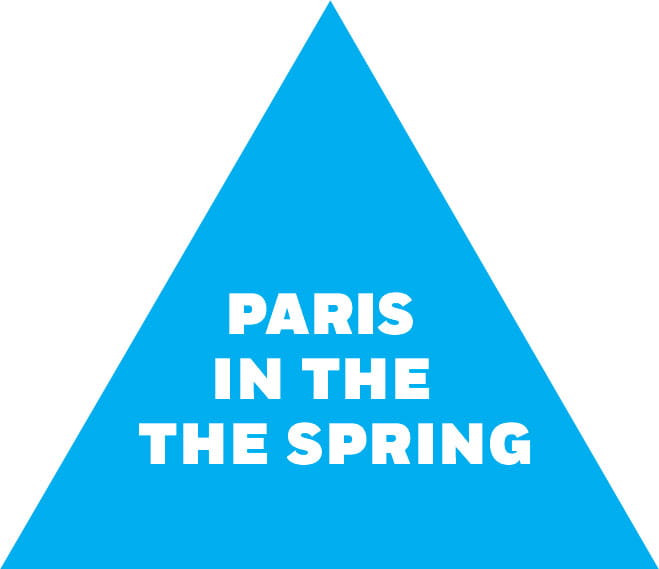Watch Out for Defaults. They Can Lead You Astray
A simple exercise reveals our cognitive biases.
- By
- January 17, 2023
- CBR - Behavioral Science
Let’s collect some data. Look at the triangle below. What do you see?

In social psychology, “bias” is a neutral word that doesn’t have a negative connotation but simply means “tendency toward.” Most of us are what I call normal neurotics, and on a daily basis, we go around trying to maintain or enhance our self-esteem, which leads to a variety of predictable biases. It’s important for us to recognize these biases because while they usually serve us well, they can also lead us astray. To that end, it helps to know some of the basic cognitive biases identified by social psychologists.
One of the most fundamental and pervasive biases is called availability, which is when things that are more available or accessible in our minds are overweighted in our judgments. There are at least two important occasions when some information is more available in our mind or memory than others: beginnings and endings. This particular default is the reason that hellos and goodbyes are so important. First impressions matter because of what is called the primacy effect. When we meet someone for the first time, that initial contact forms the basis for our judgment about that person. Endings, on the other hand, are magnified by the recency effect. Things that happened recently are more available in our memory.
Think about your most recent annual performance review at work. That conversation likely focused on the most recent three months, rather than the prior nine. This could be good if those three months are relevant when it comes to your future performance. But if you did something amazing earlier in the year, that is less likely to be brought up unless you make a conscious effort to do so.
Another tendency we have is overconfidence bias. Because normal neurotics are smart, we are often right—but we therefore think we’re right more often than we are. Yet another is hindsight bias, which holds that because we usually make good predictions, when we look back and see the outcome of an event, we say, “Oh, yeah, I knew that all along.” These biases maintain or enhance our self-esteem, but they can also get in the way of our ability to learn the right lessons from experience.
Becoming a better noticer will help you collect the data you need to make better choices—including the choice to lead and create a better future.
When we’re acting on defaults, we don’t notice things; we simply act. In order to make a different choice, we need to stop and notice what’s going on. The late Warren G. Bennis, a pioneer of leadership studies, argued that it is important for an executive to be a “first-class noticer,” a term he picked up from Chicago’s own Saul Bellow and adopted to highlight the important skill of observation. I love this term because noticing can help you turn off whatever bias might be in play and may result in you making a better decision. Inspired by it, I created a First-Class Noticer award to recognize students who demonstrate this skill in my classroom.
Becoming a first-class noticer will help you when choosing leadership (such an essential principle, in my view, that it is the title of my book). Think about a specific goal you have set for yourself. By keeping the goal in mind, it will better frame your search for relevant information. Becoming a better noticer will help you collect the data you need to make better choices—including the choice to lead and create a better future.
So what did you see in the triangle? Most people report back that they see the words “I love Paris in the springtime,” and this indicates that they approached the task with the strategy of reading, not looking. When reading, we are guided by expectations and fixate on about 70 percent of the text; we skip the other 30 percent—the little words and connectors such as “if,” “or,” “but,” and “the.” Our eye focuses on the most important words, those crucial for understanding the gist of the text, and skips the rest. Our brain irons out wrinkles so that we aren’t distracted by, say, the repetition of a connecting word.
In this task, reading was most likely your default, your go-to strategy. But look at the triangle again—and this time look carefully at every word. Usually defaults, habits, and shortcuts serve us well, but this exercise demonstrates that sometimes they don’t work and may even lead us astray. If you defaulted to reading—because that’s what excellent readers do—that got in the way of your success. You failed to catch that “the” appears twice in a row.
This exercise is illustrative. It highlights an awareness of our default settings. When might you experiment with your behavior in order to make a different choice?
Linda E. Ginzel is a clinical professor of managerial psychology at Chicago Booth. This essay is adapted from the revised and expanded edition of her book Choosing Leadership: How to Create a Better Future by Building Your Courage, Capacity, and Wisdom, released in November by publisher Health Communications.
Your Privacy
We want to demonstrate our commitment to your privacy. Please review Chicago Booth's privacy notice, which provides information explaining how and why we collect particular information when you visit our website.